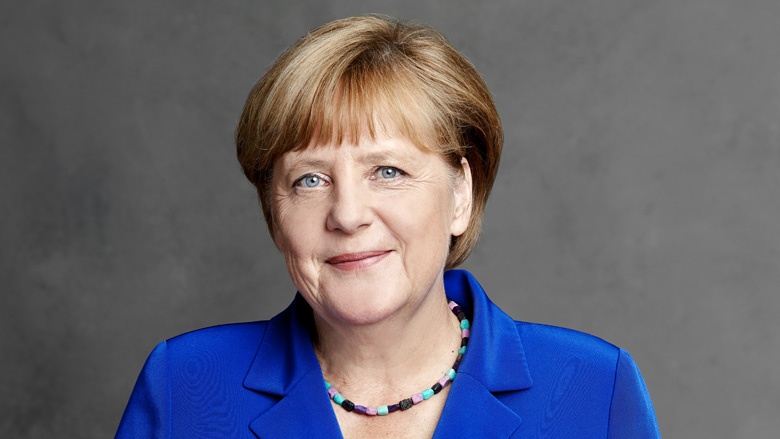A leader
July 4, 2017 | Expert Insights

Angela Merkel has launched her campaign for a historic fourth term as German chancellor under the colours of the national flag, in an attempt to wrest it back from the far-Right. Merkel is hoping to win a fourth term as Chancellor in the German election 2017, despite stiff competition from Martin Schulz. He is a German politician and the chairman of the Social Democratic Party of Germany (SPD). He was the President of the European Parliament from 2012 to 2017. In November 2016, he announced he would not seek a third term, but instead would stand in 2017 as the SPD candidate for the German Chancellorship.
Angela Merkel
Angela Merkel is a German politician and the Chancellor of Germany since 2005. She is also the leader of the Christian Democratic Union (CDU). Merkel has been described as the de-facto leader of the European Union, the most powerful woman in the world, and the leader of the free world.
Following the 2005 federal election, Merkel was appointed as Germany's first female Chancellor at the head of a grand coalition consisting of the CDU, its Bavarian sister party, the Christian Social Union (CSU), and the Social Democratic Party of Germany (SPD).
In the 2009 federal election, the CDU obtained the largest share of the vote and Merkel was able to form a coalition government with the support of the Free Democratic Party (FDP). At the 2013 federal election, Merkel's CDU won a landslide victory with 41.5% of the vote and formed a second grand coalition with the SPD, after the FDP lost all of its representation in the Bundestag.
The 62-year-old is considered globally as the most experienced and longest-serving leader of the western world. She will be looked to for answers to May’s current challenges, including how to shape relations with Europe and the United States under Donald Trump.
Analysis
German voters appear in favour of her standing again. A poll carried out by the Emnid institute for the tabloid Bild am Sonntag, showed that 55% of Germans supported her standing again, while 39% opposed it.
She guided her country through a recession with stimulus packages and subsidies for companies that cut hours for workers, and Germany entered 2016 with a budget surplus of 12.1 billion euros ($13.1 billion) and an AAA rating from credit rating agencies. She has also used her power against ISIS, breaking the post-Nazi-era taboo of direct involvement in military actions by sending arms to Kurdish fighters.
In the campaign program for the German election, Merkel’s conservatives dropped the term “friend” in describing the relationship with the United States. Instead, the US is described as Germany’s “most important partner” outside of Europe. The change in wording underscores how relations between Berlin and Washington have deteriorated since U.S. President Donald Trump entered the White House in January.
For years seen as a safe pair of hands, Angela Merkel faced her biggest challenge as chancellor when migrants and refugees began heading in large numbers for Europe's most successful economy. As late as July 2015, the chancellor was seen by some as insensitive when she tried to comfort a girl who had been waiting for years for residence in Germany.
Assessment
Our assessment is that, despite of all the issues, the chancellor is still seen as a great leader and the candidate most likely to return to the chancellery. She once said, “Fear has never been a good adviser, neither in our personal lives nor in our society.” In times of crisis, Merkel did not shy away from making difficult decisions. During Syrian refugee crisis, she had the moral courage to allow refugees into Germany, despite the political costs of the decision.
Merkel stands out as a global leader who is willing to go beyond popular national sentiments & adhere to values that are dearer to humanity.








Comments